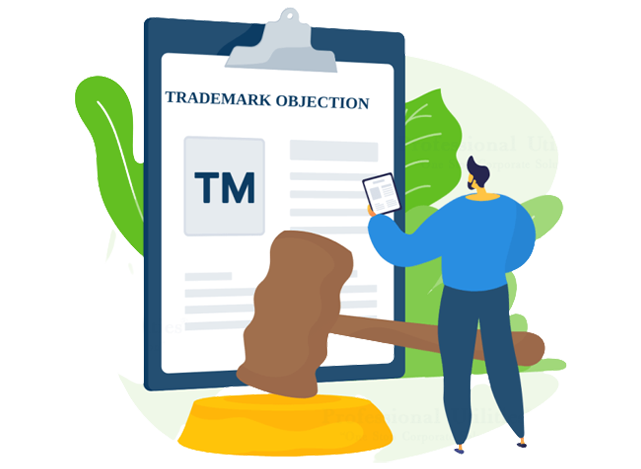Once your trademark application is objected, you will receive a Trademark Examination Report detailing the reasons for the objection. You need to respond within 30 days to address the objections.

About Trademark Objection
Trademark objection refers to a formal notice or objection raised by a trademark examiner or a third party against a trademark application during the registration process. When an objection occurs, it means that there are issues or concerns regarding the eligibility or suitability of the trademark for registration.
- Report on Authorized Document
- Trademark Examination Report
- Identification Documentation
- Process for Address Verification in Trademark Opposition
Registration Procedures

Notice of Objection :
-
Receive a formal notice outlining objections to your trademark application, including reasons and response deadlines.
Review and Understand :
Carefully analyze objections to grasp concerns about your trademark’s eligibility for registration.


Collect Evidence :
-
Gather relevant evidence, such as prior use, consumer recognition, and legal precedents, to support your case and counter each objection effectively.
Prepare Response Letter :
-
Write a formal letter countering objections. Include strong arguments, evidence, and explanations supporting trademark registration despite objections.


Propose Amendments :
-
Suggest changes to the trademark application to address objections. This could involve altering the trademark, refining the scope of goods/services, or clarifying its description.
Submit Response :
-
Send your reply and supporting documents to the trademark oice or opposing party by the deadline. Ensure compliance with formatting and procedural requirements.


Follow-Up:
-
Monitor your trademark application’s progress post-response. Be ready to provide more details or address queries from the trademark oice or opposing party.
Await Decision :
-
The trademark oice will assess your response and decide on trademark registration. This may include approval, rejection, or requests for further information.


Consider Appeal :
-
If your response doesn’t lead to approval, you can appeal. Seek advice from a trademark attorney for next steps in pursuing registration.
Frequently Asked Questions
-
What happens after my trademark application is objected?
-
What happens if the trademark objection is not resolved?
If the objection is not resolved and no satisfactory response is provided, the trademark application may be refused by the Registrar.
-
What are trademark objections under Section 11?
Section 11 objections relate to the similarity between the proposed trademark and existing ones. These can be due to identical marks, similar sounds, or shared concepts among trademarks.
-
What’s the difference between Trademark Objection and Trademark Opposition?
While the trademark objection is instituted by the trademark examiner (after thorough examination of the filed trademark), the trademark opposition is raised by any third-party
-
What are trademark objections under Section 11?
This section primarily bars the registration of trademarks on the ground of it being confusing or deceptive, hurtful to religious sentiments or scandalous
